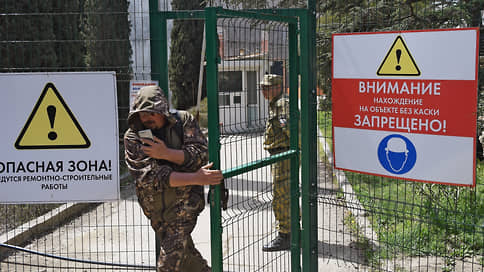Nature will take its toll – Business – Kommersant
[ad_1]

More than 13 billion rubles. in 2023-2025 will be allocated for the construction of modular hotels and the development of tourism in specially protected natural areas. Prefabricated hotels are popular with investors due to their small investment size and short payback period, although accommodation in them may not always be comfortable. But it is difficult to attract business to the development of tourism within the boundaries of national parks and reserves, since their managers are not always interested in increasing the tourist flow.
Russian President Vladimir Putin instructed the government to allocate at least 8 billion rubles by June 1. to support grants for projects to create modular accommodation facilities in 2023-2024. At least 5.1 billion rubles more. in 2023-2025 should be allocated for the creation of infrastructure for the development of tourism in specially protected natural areas (SPNA) of federal significance.
Orders published on the website kremlin.ru on the results of the January meeting of the president with members of the government. Within the framework of concessional lending programs for small and medium-sized businesses, it is also planned to provide preferential loans to organizations and individual entrepreneurs in the tourism industry, in particular, for modular hotels.
There is no data on the number of modular hotels currently operating in Russia. Stanislav Ivashkevich, founder of Ivashkevich Hospitality, explains that such structures can be used either as an additional option for capital accommodation facilities, or as an independent object in a place where capital construction is limited. In the latter case, objects often position themselves as glampings. According to the map of the Glamping Association, there are now 402 such projects in the country, of which 241 operate all year round.
The ability to install modular structures attracts investors due to the low entry threshold and relatively quick payback.
Mr. Ivashkevich estimates the cost of building one house at 1-2 million rubles, and investments in the project – up to 10 million rubles. Investments can pay off in three years, he calculated. The construction of a capital hotel, according to Mr. Ivashkevich, usually costs from 500 million rubles, and the return on investment can take 10-15 years or more.
Aleksey Kozhevnikov, a member of the public expert council of the national tourism project, calls the lack of standards for the construction of modular accommodation facilities a big problem.
This leads to the emergence of projects with houses of a very small area, located crowded in small areas, and tourists may be dissatisfied with accommodation in such objects, the expert points out. Stanislav Ivashkevich also draws attention to the lack of security requirements in modular hotels. This can pose risks for guests if hosted by non-professional owners, he notes.
Sergey Romashkin, the general director of the Dolphin tour operator, says that today most modular objects are being built not within the boundaries of protected areas, but in ordinary areas where work does not require additional approvals from environmental authorities. And the administrations of protected areas, in turn, are not always interested in attracting travelers, considering guests as a threat to the environment, he points out. According to Mr. Romashkin, this makes it difficult to attract investors to such projects now.
As the Association of Tour Operators of Russia reported, citing data from the Federal State Budgetary Institution Roszapovedtsentr of the Ministry of Natural Resources of Russia, in 2022 the flow of tourists to national parks and reserves increased by 40%, to 14 million tourists year-on-year. In particular, 5.4 million guests came to the Kislovodsk National Park in the resort of the same name. Although Sergey Romashkin notes that the methodology for calculating the tourist flow to protected areas is not always obvious due to the vague delineation of the boundaries of such territories.
[ad_2]
Source link





